Taste sensation: how cooking sim developers compensate for taste and smell
Cooking sims don’t need to stimulate every sense to be meaningful
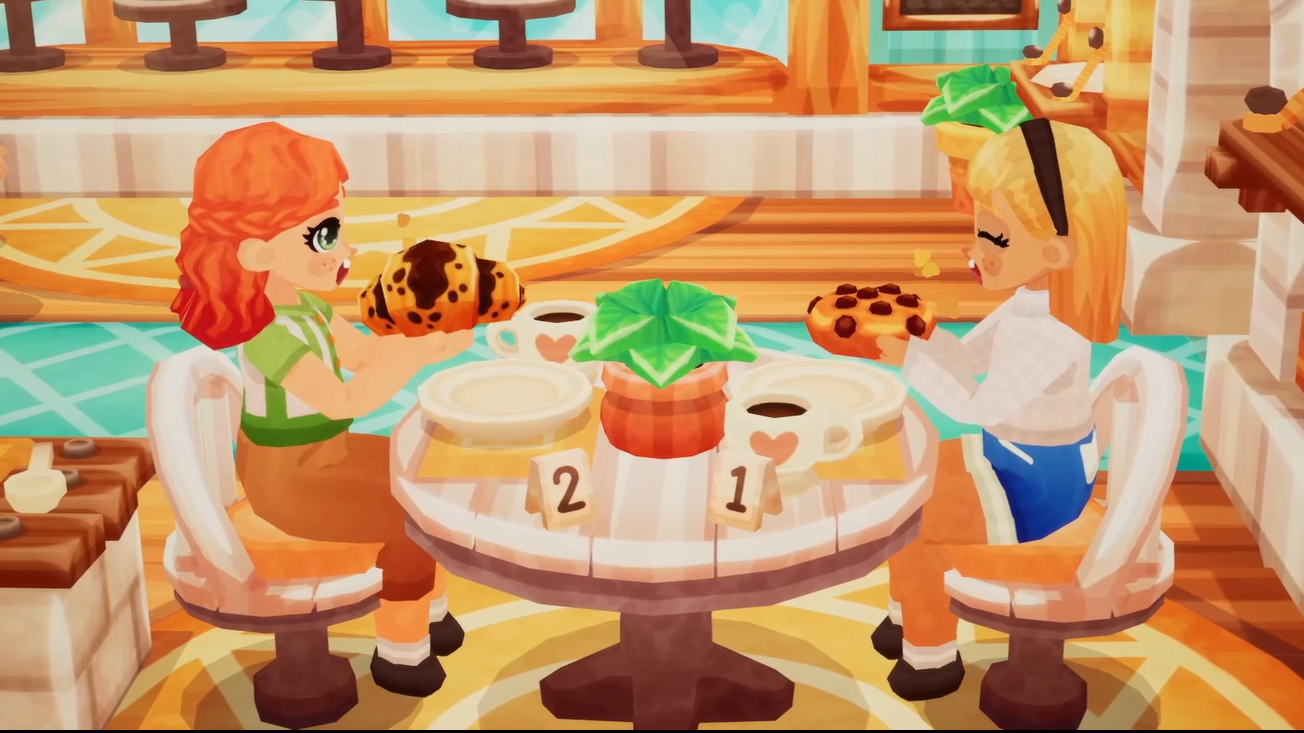
Sign up for breaking news, reviews, opinion, top tech deals, and more.
You are now subscribed
Your newsletter sign-up was successful
Even the most immersive games are stuck in a flatscreen world. While developers can create fantastical visuals and wonderful soundscapes and have done so since the advent of home computing, sometimes there’s only so much that you can do.
Haptic feedback is beginning to emulate the sense of touch, and advances in tech, like the Nintendo Switch’s HD Rumble feature, make it clear that simulation is an area of importance for developers. But there is currently no realistic way for games to replicate the senses of taste and smell directly to a player. Short of including a personal chef with each copy of a cooking sim to recreate the recipes in the player’s own home, it is unlikely the industry will overcome that particular barrier in the near future.
And yet cooking sims – and cooking minigames within other titles – persist, even without the ability to stimulate the senses most associated with the activity.
Some AAA developers compensate by creating incredibly well-modeled food items, whether that be the famous bread from Yakuza: Like a Dragon or the meals from Final Fantasy 15. Others, like Monolith with Xenoblade Chronicles 3, instead concentrate on recreating the sounds of sizzling veg, plates clinking, and popping oil that we associate with mealtimes.
For smaller developers, however, that hyperreal presentation is often beyond their resources. Instead, those passion-led teams have to find other ways to emulate those missing senses, either through gameplay or design.
Doing what you can
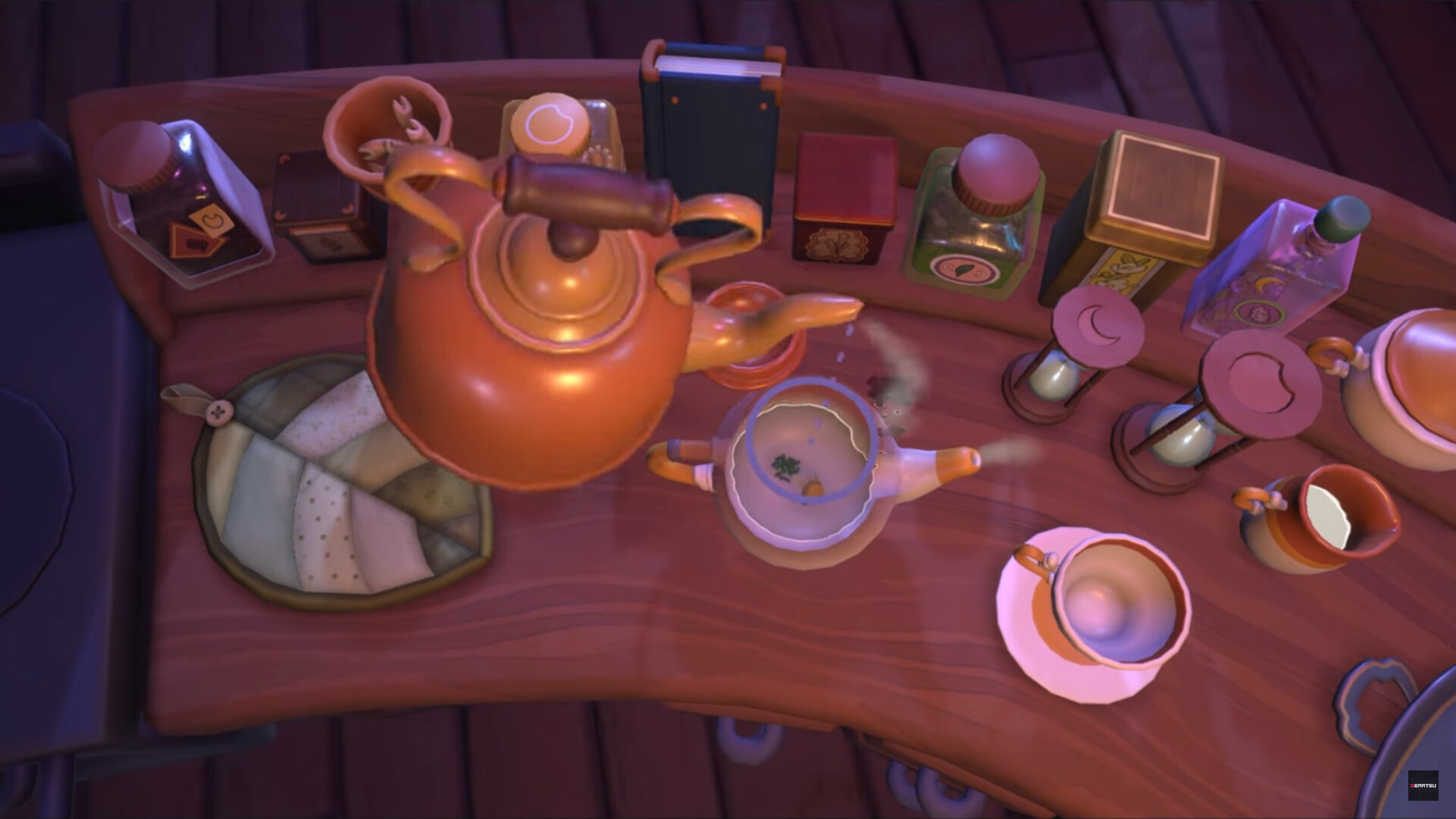
Tanya Short is the designer of the upcoming title Loose Leaf, which aims to be ‘the most in-depth tea-brewing simulator ever.’ She explains that the team’s priority is to concentrate on the sensations that can be offered in-game, rather than trying to compensate for those that can’t:
“We wanted to make the most in-depth tea brewing simulation because we spent a year trying to really get at the tactile pleasure of steeping and pouring tea,” Short explains. “We can't offer the taste and smell, but we can offer the sound and help people imagine the tactile joy as well, the clatter of pottery and the soft brush of leaves.”
Sign up for breaking news, reviews, opinion, top tech deals, and more.
The beer needed to look absolutely tantalizing, giving players a real sense of achievement and ownership over their creation
Matt Bone
Another developer who holds a similar point of view is Matt Bone, the lead designer for Brewmaster, a fantastic simulation game dedicated to the art and craft of creating beer. He notes that as the visual appeal of a beer is key to its appreciation, the team focused on getting the depiction of a finished brew just right.
“We spent a lot of time setting up an idyllic, photoshoot-like scene, with cozy lighting, just the right amount of lacing on the glass, and so on,” Bone recalls. “The beer needed to look absolutely tantalizing, giving players a real sense of achievement and ownership over their creation.”
Similarly, the developers of Espresso Tycoon noted that the overall experience of making coffee went beyond taste. The sights and sounds of a cafeteria or milk frother are integral to the experience. Joanna Berezowska of developer DreamWay Games explains:
“There are ice cubes; there's also steam rising above the coffee. We've also added a lot of realistic sounds when making a coffee recipe – such as frothing milk, or pouring liquids. We know it's important to players, and quite a few of them find it relaxing.”
Simulating senses
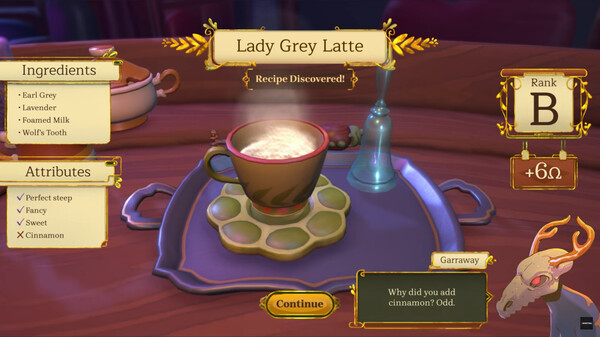
However, Short notes that even the most realistic cooking sims have to take liberties with the timescales and techniques of cooking. The Loose Leaf team, for example, found that “without the player being able to feel the warmth or taste the results, the subtler differences between 175F and 195F just aren't intrinsically meaningful or observable”.
As a result, she says the team did not attempt to slavishly recreate a “1:1 perfectly real tea-brewing experience”, but instead used the neverending repetition of teas brewed to encourage a player to “pay attention, to feel really involved in creating a perfectly steeped combination of flavors, to find new tea blends and recipes that appeal to different guests.”
As with the vast majority of great simulation games, absolute realism is traded for a distillation of what makes the activity appealing and memorable. Bone, too, says that creating a satisfying loop takes precedence over a perfect simulation:
“We wanted players to immerse themselves in the process of brewing, feel the satisfaction of pouring malt into a container, see the layer of foam – the krausen – that appears during fermentation,” Bone says. “Authenticity is vital here, but so is gratifying interactions. The latter needed a lot of playtesting to ensure they felt good.”
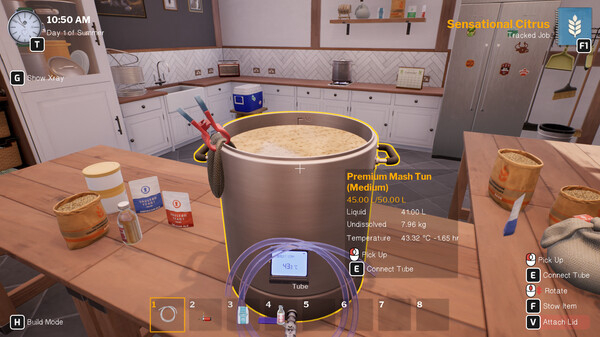
The exaggeration of the often frantic nature of cooking is at the heart of the success of multiplayer titles like Overcooked and Plate Up!. But by focusing on the other end of that scale, on emulating the calming approach to food and drink creation, developers can appeal to something much more profound.
Éloïse Laroche is the designer of Lemon Cake, a mix of a farming game and a bakery simulator. She explains that finding the balance between the chaos of cooking and a relaxing experience was tricky:
“This was actually a big challenge in the game as it turned out to be a bit stressful and chaotic at times,” Laroche says. “I've also had a lot of comments from people who appreciate how the game keeps them fully engaged, as they're always thinking ahead to their next tasks. I think sometimes games that are "too relaxing" can lose the attention of the player. Both styles of gameplay are good, and I like having a mix of cozy and chaotic in my wholesome games.”
Comfort food
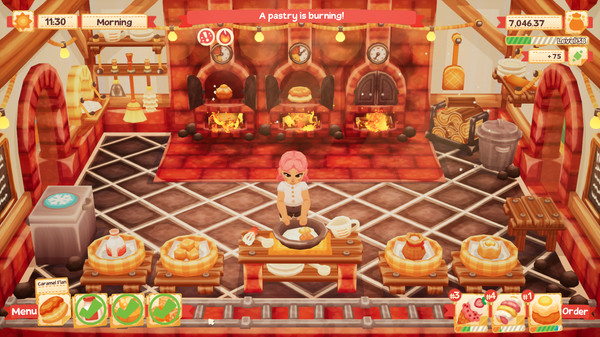
For many people, cooking is more than simple stimulation of the senses. Instead, it can be a calming ritual, a family activity, or a distraction from stress. Some games, like Venba, use the act of cooking to tell a story over many years, using the memories associated with particular dishes as beats in the story. Others, like Coffee Talk, use the process of creating a particular drink for people as a metaphor for getting to know them.
Short says that the Loose Leaf team aimed to create a calming moment in time for players. “As with any ritual, it's important to us that the care of their space and spending of their time is up to the player's self-control and sensibilities.
“Some will probably choose to spend the time cleaning up their kitchen from any mess created, while others might want to water their plants or look through their tea master's journal. Ultimately, we like to think of this game as more of a sandbox or a toolbox rather than a rigid theme park ride.”
Similarly, Brewmaster’s lead producer, Peter Willington, describes how he hopes “people felt relaxed; to derive comfort from experimenting, exploring science and history, creating and learning.”
Bone also notes that the ultimate validation for any cooking or brewing game is when a player takes the step to create their own produce in the real world, where they can experience the full range of senses. “We wanted Brewmaster to be approachable, because we found a joy in the science and artistry of brewing that we wanted to share with others, and it’s always really gratifying when we hear from a player that has gotten into homebrewing because of our game.”
Cooking sims cannot stimulate the senses of taste and smell directly. However, by tapping into the emotions associated with the act, developers are crafting experiences that speak to the experience of cooking in a far more meaningful way.
For more excellent games that are ready to enjoy right now, check out the best indie games and the best story games.
Chris is a freelance tech and gaming journalist, with bylines in a variety of titles about internet culture, gaming and tabletop. He's the founder and co-host of the Media Voices podcast, and he will be an asset to any Rocket League team you're putting together.
